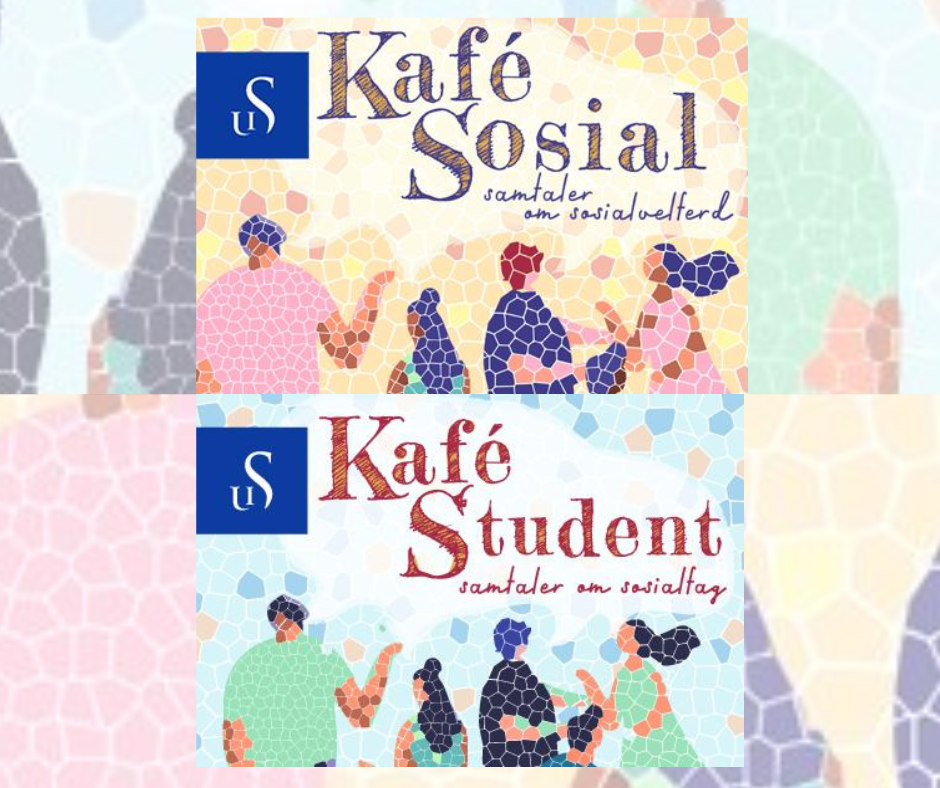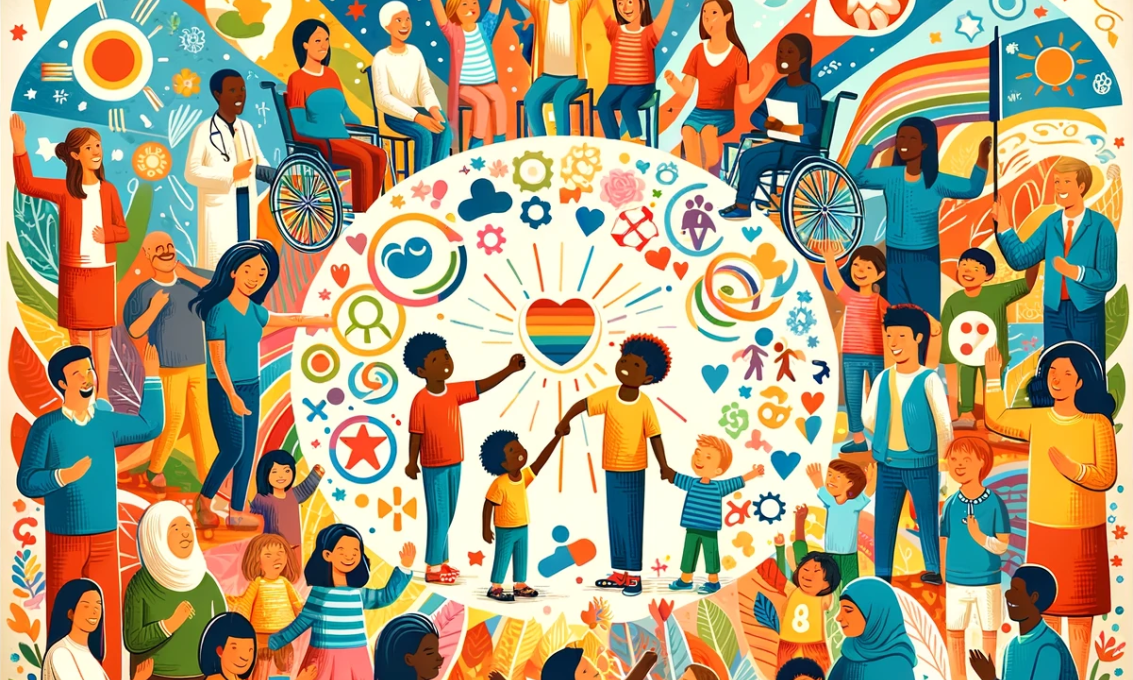Here you will find various resources related to diversity in child welfare services.
On this page you will find resources on diversity in child welfare. Working smarter means learning from the different perspectives and skills that people bring to the table. Whether you are a student or a professional, you can find tools and guides to help you understand and work better with diversity in child welfare. Together, we can work towards a more inclusive and knowledgeable child welfare system, in the best interests of all children and families.
Diversity in child welfare services
Child welfare services encounter a great diversity of colleagues and clients. The same applies to research in child welfare-related areas and collaboration with international researchers.
Working smarter means working and learning with and from the different perspectives and skills these people bring to child welfare work. Working with these differences in a work context is challenging. Being or thinking differently can mean that we, as a customer, professional or researcher, can be subject to negative discrimination. This can make us feel vulnerable. Overcoming these challenges and promoting acceptance and tolerance of diversity is necessary to build an effective community.
Podcasts about diversity in child welfare services
Here you will find various podcasts on the topic of diversity in child welfare services.

Kafé Sosial
We all feel vulnerable at some point in our lives, and we rely on the support of others to get by. As a society, we all have a shared responsibility to support others when they need it. Kafé Sosial is an inclusive forum where multiple voices come together in informal conversations about the many experiences of vulnerability and the everyday lives of the services that support us.
Working smarter means working and learning with and from people with diverse perspectives and skills. But bringing these differences to a work setting, may mean we face negative discrimination. This can makes us feel vulnerable. Promoting the acceptance and tolerance for diversity is necessary to build an effective workplace community. Stavanger, as a uniquely multinational town, has diveristy, equity and inclusion high on many organisational agendas.
In four episodes of Kafe Sosial, we explore how different organisations in the region view and implement this agenda. We share these perspectives to build bridges between our organisations, learn across sectors and to do things better together.
In our first episode, we hear a university perspective. Prof Sarah Hean from the University of Stavanger talks to Prof Maryan Koehler, University of Denver, Colorado about what diversity means in higher education and what universities can do to promote diversity, equity and inclusion in our staff and student community. Maryan is an adjunct professor at the University of Colorado with a Doctorate in Education (Ed.d) from Durham University, UK. She spreads her working life between the US and Stavanger, Norway.
Working smarter means working and learning with and from people with diverse perspectives and skills. But bringing these differences to a work setting, may mean we face negative discrimination. This can makes us feel vulnerable. Promoting the acceptance and tolerance for diversity is necessary to build an effective workplace community.
In our second episode about diversity, we hear the perspective of Dr Patrycja Sosnowska Buxton, talking with Prof Sarah Hean about some of the challenges of implementing a meaningful diversity strategy. They talk especially of seeing diversity as more than just a gender and ethnicity, issue but also about lived experience such as domestic violence and how employers, such as the University support their staff in these vulnerable situations. Patrycja is a post doctoral fellow at the department of social work at the University of Stavanger.
The green transition will be one of the biggest transitions we and future generations will experience in our lifetime. But there are concerns that certain groups might be left behind.This is highly likely if the voices of all groups in Norwegian society are not heard. In this podcast, we hear the personal stories of a varied group of individuals living in Norway, brought together by a passion and value of diversity, equity and inclusion. They discuss the potential impact of the green transition for them.
In this episode Prof Sarah Hean from the University of Stavanger reflects on what it means to work well together in trans continental partnerships. She draws on her earlier reflections on “contact is not enough” and explores how we can achieve equality amongst participants. She uses the NOREC consortium, a collaboration between Tanzania and Norway by way of example , and calls for a routine decoloniality perspective when managing social innovation in these partnerships.
Research articles on diversity in child welfare services
Here you will find research articles relevant to the topic of diversity in child welfare services.

- The challenge of western-influenced notions of knowledge and research training: lessons for decolonizing the research process and researcher education, Journal of Ethnic & Cultural Diversity in Social Work, Begna Gobena, E, Hean, S. Heaslip, V. & Studsrød, I (2023)
- Young, unaccompanied refugees’ expectations of social workers and social worker roles. Journal of Comparative Social Work, Borho, L. N., Hovland, W., & Hean, S. (2023).
- Interprofessional collaboration and research networking in Global North–Global South partnerships. I: Change agents : an interprofessional book about children with disabilities in Tanzania and Norway, Hean (2023)
- Pakistani children's lived experiences of relationships in the context of child protection services in Norway: An interpretative phenomenological analysis. Pakistani children's lived experiences of relationships in the context of child protection services in Norway: An interpretative phenomenological analysis., Wilson, Samita; Hean, Sarah Catherine Patricia Duff; Abebe, Tatek ; Heaslip, Vanessa (2023)
- The war within: emotional experiences of children in Norwegian child protection services, Wilson, Samita; Hean, Sarah Catherine Patricia Duff; Abebe, Tatek ; Heaslip, Vanessa; Smith, Jonathan (2023)
